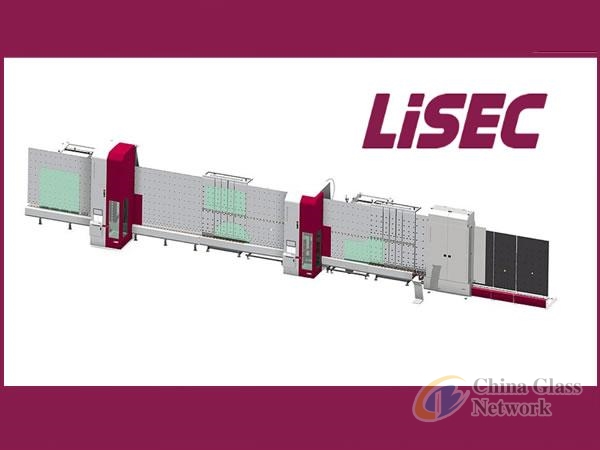Post Time:Sep 30,2018Classify:Company NewsView:1376
In the processing area, LiSEC focuses on a line concept comprised of a vertical edge grinding machine, a drilling and milling centre and a washing machine. Horst Schraml, head of the business unit Processing at LiSEC: "We are confident in this line concept: Compared to combination machines, the line is significantly faster and more effective, as all components are in continuous use. Unlike single machines, the line concept offers an uninterrupted material flow."
Grinding and polishing edges
The edge grinding machine is a fully automatic system for grinding
and/or polishing the glass sheets (grinding to size, fine-grinding). It
is available with one or two grinding heads. The design with two
grinding heads allows parallel processing of the top and bottom edge of
the glass sheet. On request, the tool change can be automated. The edge
grinding machine, which processes rectangles as a standard but can also
work with shapes and radiuses, scores with short cycles times, achieved
through the optimised manufacturing process for ground or polished
edges. Another feature of this system, which has been redesigned from
the ground up, is the optimised accessibility for service and
maintenance tasks. Those tasks can now be completed significantly
faster. The well thought out tool management will impress operators: For
example, the system automatically corrects polishing wheel wear, and
reprofiles & measures tools in production-free periods if possible.
Drilling and milling centre with water jet
The heart of the system is the optimised MRX-B WJ processing centre (the WJ stands for water jet). This processing centre is fast, versatile and easy to operate. The MRX-B WJ achieves
exceedingly fast cycle times. For a shower door with two Mickey Mouse
cut-outs and a handle hole the system needs less than 90 seconds.
Processing the same door with ground cut-outs takes less than two and a
half minutes. These rapid processing times are enabled by technical
refinements. For example, positioning the water jet cutting head
directly below the processing spindle on the same axle allows faster
changes between tools and waterjet processing. Furthermore, mounting the
tool changer directly on the processing spindle speeds up the tool
changes, right at the processing location where the tool is required.
This minimizes unproductive idle times.
The MRX-B WJ makes it easy for the operators: Standard processes can be created quickly, without any CAD knowledge or software. Operators can also save favourites. The system takes care of the assignment and optimisation of tool types/diameters – all the operator has to enter is the desired quality. The system also automatically regulates the speed according to the vacuum conditions.
Versatility is an important asset of the MRX-B WJ: It can be used for drilling, milling, countersinking and grinding. It is possible to use combination tools or the patented water jet technology. It still retains the advantages of a standalone machine, as the MRX-B WJ can be loaded separately even in the line.
To avoid bottlenecks on the line caused by sheets which are not processed further after grinding, the VLO (vertical lift over) system transports these sheets past the MRX-B WJ. This option eliminates the need for sorting during the sheet set up: The operator can put the complete batch on the line with no regard for the processing.
Washing and drying
The last machine in the line is a fully automatic washing and drying
system with four brushes. This machine, which can wash glass sheets up
to 20 mm thick without any further adjustment, is equipped with fresh
water rinsing after each brush zone (cascade system) and a hot water
system with thermostat for the first brush zone. A pre-washing zone and
brushes for washing low-E glass sheets are available as options.
Technical data
Max. length: 4,000 mm
Min. length: 500 mm
Max. height: 2,700 mm
Min. height: 160 mm
Thickness: 4 - 20 mm

Source: LiSECAuthor: Shangyi
PrevSalesforce Transit Center San Francisco
Vitro Architectural Glass Updates Two AIA Continuing Education CoursesNext